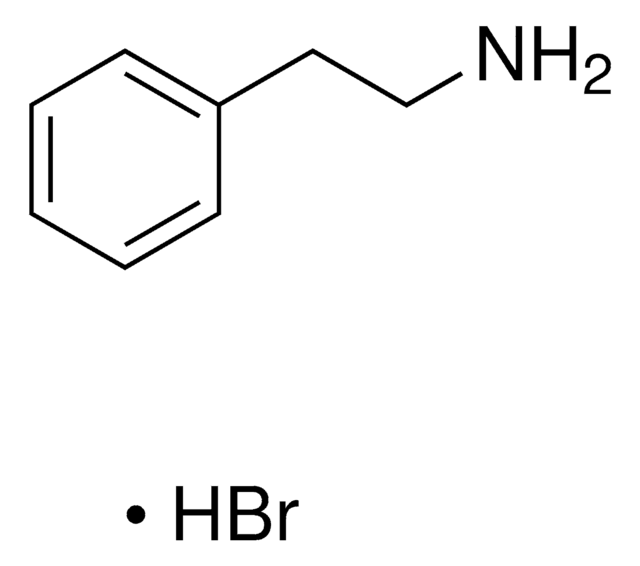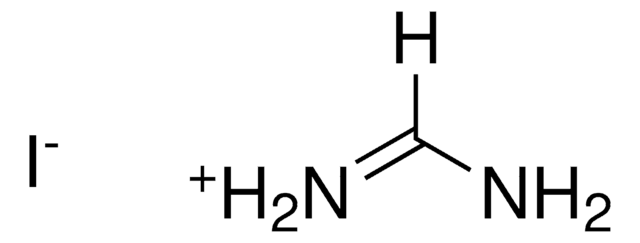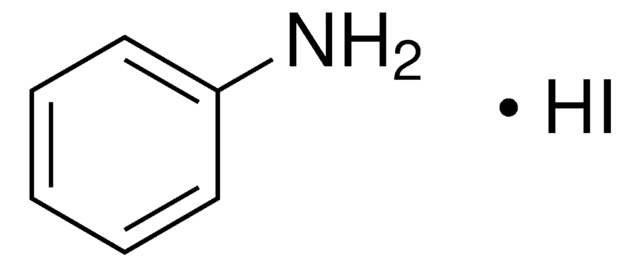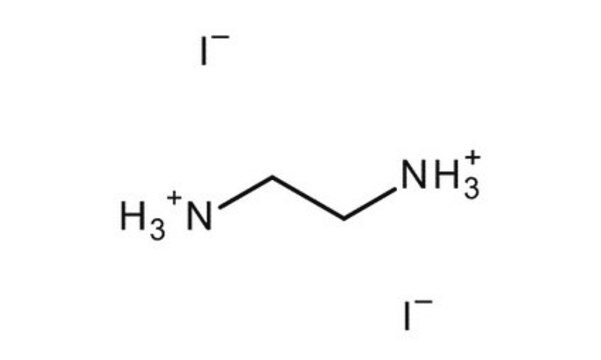805904
Phenethylammonium iodide
Synonym(s):
Greatcell Solar®, Phenethylamine hydriodide
About This Item
Recommended Products
description
Elemental Analysis: ~38.5% C, ~5.6% N
Quality Level
Assay
98%
form
powder
greener alternative product characteristics
Design for Energy Efficiency
Learn more about the Principles of Green Chemistry.
sustainability
Greener Alternative Product
mp
283 °C
greener alternative category
, Enabling
SMILES string
[H][N+]([H])([H])CCC1=CC=CC=C1.[I-]
InChI
1S/C8H11N.HI/c9-7-6-8-4-2-1-3-5-8;/h1-5H,6-7,9H2;1H
InChI key
UPHCENSIMPJEIS-UHFFFAOYSA-N
General description
Application
Legal Information
Greatcell Solar® is a registered trademark of Greatcell Solar Materials Pty Ltd
Signal Word
Warning
Hazard Statements
Precautionary Statements
Hazard Classifications
Acute Tox. 4 Oral - Eye Irrit. 2 - Skin Irrit. 2 - STOT SE 3
Target Organs
Respiratory system
Storage Class Code
11 - Combustible Solids
WGK
WGK 3
Flash Point(F)
Not applicable
Flash Point(C)
Not applicable
Choose from one of the most recent versions:
Certificates of Analysis (COA)
Don't see the Right Version?
If you require a particular version, you can look up a specific certificate by the Lot or Batch number.
Already Own This Product?
Find documentation for the products that you have recently purchased in the Document Library.
Customers Also Viewed
Articles
Next generation solar cells have the potential to achieve conversion efficiencies beyond the Shockley-Queisser (S-Q) limit while also significantly lowering production costs.
For several decades, the need for an environmentally sustainable and commercially viable source of energy has driven extensive research aimed at achieving high efficiency power generation systems that can be manufactured at low cost.
Our team of scientists has experience in all areas of research including Life Science, Material Science, Chemical Synthesis, Chromatography, Analytical and many others.
Contact Technical Service










